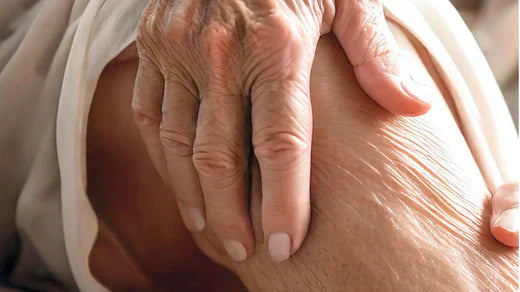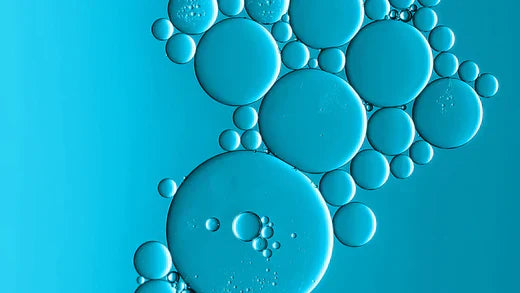Explanation, application, properties and effects of essential oils!
Essential oils are described by experts as the soul of plants. As aromatherapy, they are an established part of alternative medicine and are very popular around the world. The word "essential" comes from "ether", which means something like "volatile", "spiritual", "transparent", "heavenly" and "light". Essential oils are mainly used for physical ailments. However, their effect also unfolds on the soul. They are extremely versatile and easy to take. There are hardly any risks with essential oils, as long as there is no allergy or other problem. These plant extracts are best suited for self-treatment and usually do not require any help from a doctor. But where do essential oils actually come from, how are they obtained? Which essential oils are there and what effect do they have? We will take a closer look at all of this and much more in this article!
What are essential oils and how are they extracted?
Essential oils are produced during the photosynthesis process of a plant and then stored in various parts of the plant. These include the leaves, the herb, the branches, the peel, the seeds, the flowers and the wood of a plant or tree. Essential oils are produced by the plant in order to be able to assert itself against its environment. Essential oils are essentially the "plant's medicine cabinet" with which it protects itself from pests. We humans can also benefit greatly from the power of this plant extract. We have come up with different extraction methods for this. Essential oils are extracted using steam distillation, extraction or pressing. In this way, we extract the wonderfully fragrant and highly concentrated plant essences from the plant so that they can then be processed further.
The more essential oil a plant contains, the stronger its scent. Essential oils are very rare, however, which is why a lot of plant material is needed for a few drops of this plant extract. For example, around one gram (25 drops) of essential oil can be extracted from 120 to 140 g of lavender flowers. For the same amount of rose oil, up to 5 kg of rose flowers are needed, and for lemon balm, an incredible 7 kg! Essential oils are therefore not necessarily easy to extract. However, their effect justifies the effort.
Essential Oils Effect
We humans like to use our sense of smell to learn about things and classify them. This is mainly because at that time our sense of smell was much better developed than our eyes. With the help of our noses we could identify dangers, learn about new things in the world, protect ourselves from spoiled food and find a suitable sexual partner. The sense of smell therefore appeals to a very old part of our brain! Essential oils basically work in three areas of our body.
#1: Essential oils work thanks to their scent molecules – The sense of smell
There is a lot going on in our nose every day! Almost 10 to 30 million nerve cells, which are spread over around five square centimeters, call the nasal mucosa their home. They contain receptors for 400 different scents and are renewed every four to six weeks. The essential oil and its scent molecules then dock onto these. This happens with a so-called key-lock mechanism. The olfactory nerve receives a signal and then passes it on to the cerebrum. This is one of the oldest regions in our brain. This is the limbic system and is responsible for very archaic body functions such as instinctual behavior. Essential oils and their scent molecules can therefore influence our feelings and our mood. Essential oils also regulate hormone production, have an antidepressant and sleep-inducing and calming effect. Depending on the plant, they can also be stimulating and improve concentration.
#2: Essential oils work through our skin receptors – The skin
Essential oils also work thanks to the receptors on our skin. But also on those of our organs and mucous membranes. Essential oils penetrate deep into the layers of the skin and a small part can even be absorbed into the bloodstream. This is how essential oils also work on the organs. It is also possible for essential oils to enter the bloodstream when inhaled into the lungs. On the skin, essential oils have anti-inflammatory, circulation-promoting, stimulating, skin-care and pain-relieving effects. But they also have antispasmodic, digestive and expectorant properties. All of this is possible because essential oils have the right components for our receptors. It is also known that some body cells have scent receptors and can therefore literally “smell”!
#3: Essential oils act on microorganisms – The bacterial culture
Our microorganisms are inhibited by essential oils. This mainly affects parasites, viruses, bacteria and fungi on our skin and in our body. Their effect is therefore antifungal, antiviral and antibacterial.
A short overview of which essential oils work how:
- lavender
- sage
- carnations
- eucalyptus
- chamomile
- tea tree oil
- and onion
A digestive and stimulating effect is achieved by:
- marjoram
- Cinnamon
- and caraway
Essential oils for coughs and colds:
- spruce
- mint
- eucalyptus
- nutmeg
- thyme
- peppermint
- lemon
- and Thuja
Essential oils that have analgesic and calming effects:
- chamomile
- Cajeput
- peppermint
- Geranium
- and bergamot
Essential oils that have antispasmodic and anti-stress effects:
- lemon balm
- lavender
- and ylang-ylang
Essential oils that promise a skin-care effect:
- benzoin
- rose
- and lavender
The following essential oils also provide effective mosquito protection:
- eucalyptus
- tea tree oil
- and citronella
#4 Essential oils that have a beneficial effect on the soul and mind
Very reassuring are:
- nutmeg
- thyme
- nutmeg
- citronella
- rosemary
- and spruce needles
A mood-enhancing effect is achieved by:
- Neroli
- rose
- mandarin
- Lemongrass
- and geranium
An activating effect for more concentration is achieved by:
- thyme
- nutmeg
- spruce needles
- citronella
- rosemary
- Cajeput
- Lemongrass
- eucalyptus
What are essential oils used for?
Essential oils can be used in a variety of ways. The basic treatment that essential oils make possible is aromatherapy. Aromatherapy gets its name from the fact that essential oils are used to combat these. Naturopaths and scientists have been arguing for many years about whether and, if so, how essential oils work. Aromatherapists, on the other hand, use essential oils specifically to treat mental and physical problems. As we have just discovered, the effect can have both an external and internal effect.
Essential oils as bath additives for body, mind and soul!
Essential oils are preferred for a pleasant, relaxing and health-promoting scented bath. This can be done as a full or partial bath and achieves the desired effect depending on which plant extract is used. Essential oils as bath additives have a long tradition. Even in the time of Hippocrates, special scented baths were used to strengthen the health of mind and body. Essential oils improve the mental state as well as the rest of the physical body itself. It was very popular then as it is now and the trend is increasing. This is probably also due to the beauty effect that essential oils also bring. As part of a bath additive, they have a very positive effect on the skin and its bacterial culture. Essential oils in a bath additive make the skin healthy, soft, cared for and smooth. In addition to the feeling of well-being and health, this in turn has an effect on the skin structure. The skin looks younger and more vital, especially in a stressful everyday life. (Read also: Find the right bath additive!)
Essential oils also pose dangers!
Essential oils and bath additives that contain them are not recommended for allergy sufferers, pregnant women and small children, or only to a limited extent. Allergy sufferers can suffer from shortness of breath, skin irritation and itching. Pregnant women can only use essential oils to a limited extent. Not all bath additives that contain essential oils are equally bad. It is more important to find the right ones. Your family doctor can help with this. For babies and small children: yes, essential oils, but only in very diluted concentrations!
Essential oils, a miracle of the plant world!
Essential oils contain a lot of biochemical ingredients that have a positive effect on the three levels: soul, mind and body! They strengthen health, well-being and attractiveness. Essential oils have a wide variety of effects and are easy to take and use. They promise a stimulating, relaxing, balancing, concentration-enhancing, health-promoting, mood-enhancing and performance-enhancing effect for everyone who uses them. Take a look around our shop for the right bath additive for you and relax with a soothing bath!





